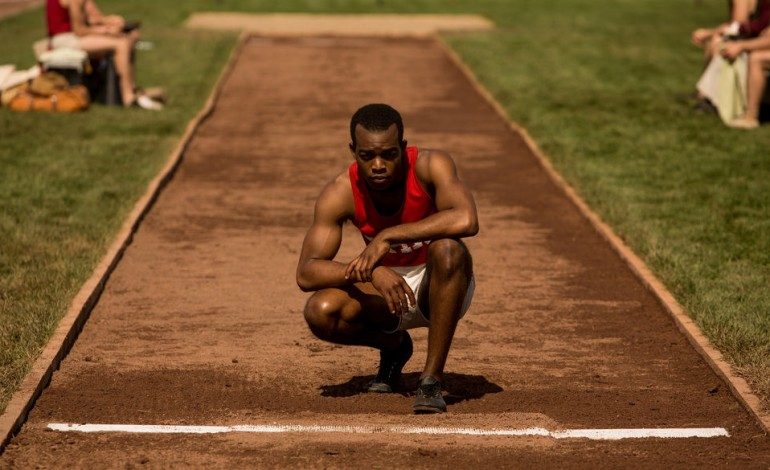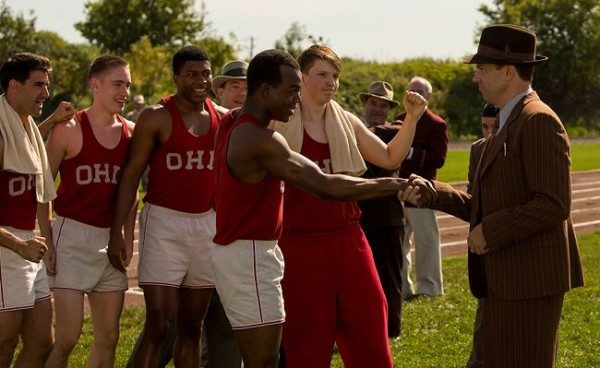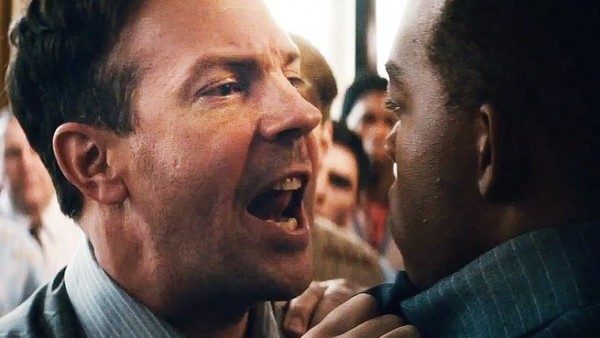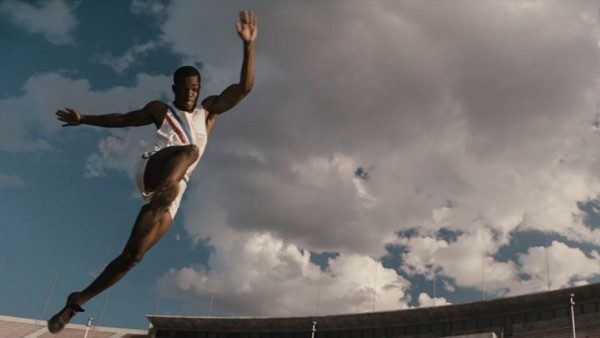

Race is being advertised as a biopic of Jesse Owens, “the fastest man alive”. That’s partially accurate. The film does tell the story of Owens from the time he joined Ohio State’s track team to him competing in the 1936 Olympics. The film, also, tells the story of the back room dealings between the U.S. Olympic Committee and the Nazi regime hosting the 1936 Olympics. The film, also, also, tells the story of filmmaker Leni Riefenstahl’s struggles with the Nazi’s Minister of Propaganda Joseph Goebbels in documenting the 1936 Olympics.
Now, anyone of these story lines would make a great movie in and of themselves. Directed by Stephen Hopkins, who’s career ranges from the under-rated Predator 2 to the incredible Life and Death of Peter Sellers and everything in between, Race never settles on one story long enough for the audience to invest in. Just as we see Jesse Owens and his friend deal with the racism of the football team in the OSU locker room, the film jumps to the debates of whether the U.S. should boycott the Olympics. Back and forth this continues until both stories meet up with the Leni Riefenstahl story at the Olympics. (Spoiler alert: the United States did not boycott the Olympics.)
The part of the film dedicated to Jessie Owens does hit all the key biopic plot points that are to be expected. After being the first member of his family to go to college, Owens finds fame quickly after breaking four national records at his first track meet. He has an affair and his fiancé back in Columbus threatens to leave him. The NAACP tells him that it’s his duty to boycott the Olympics. Everything that pretty much every other biopic is covered. However, everything that happens is rushed through in order to tell the other stories that are going on simultaneously.
That’s unfortunate because all of the performances in this film deserver their own due. Relative newcomer Stephan James gives an altruistic performance as Jesse Owens, who only wants to run and who only feels himself when he is running. SNL alumn Jason Sudeikis sheds his modern day Chevy Chase persona to play Owens’ coach, Larry Snyder – a once possible Olympian. The chemistry is there between these two. At times comical and other times intense and passionate. It is a shame that the filmmakers didn’t have the patience or confidence to simply make the film about them, or center the film exclusively on Owens.
Instead, they brought in the world around these two. In 1935, the United States wasn’t fully aware of the horrors happening in Nazi Germany. There were enough that knew, though, to begin protesting the United State’s involvement in the games. Bring on William Hurt and Jeremy Irons. Hurt plays the president of the Amateur Athletic Union Jeremiah Mahoney and Irons plays Avery Brundage, former Olympian and current business tycoon. Brundage believes that the Olympics should be about the sport itself and that politics should be left aside and, therefore, agrees to become a representative to Germany to help sway the committees’ votes. While in there, of course, Iron’s Brundage sees anti-Jew propaganda plastered everywhere and Jews being forcefully removed from their homes. All of this during his drive through the Universal Backlot on his way to meet Herr Goebbel (played by Barnaby Metschurat) and Leni Refinstahl (Carice van Houten, Black Book).
Oh, I’m sorry. This is a film about Jesse Owens. Jesse Owens battles his way through hardship and racism and clichés to become to become a record-breaking, four-time gold medal Olympian. (Again, spoiler alert: read a history book and it wouldn’t be a spoiler.)
Verdict: 3 out 5
Honestly, it’s the performances that save this film. There is so much thrown on the screen that this review should be three times as long. (I didn’t even get to the Leni Refinstahl bits.) Stephan James and Jason Sudeikis do have a solid chemistry together and throw in Jeremy Irons and William Hurt in to anything and you can’t go wrong. I don’t know if the filmmakers got caught up in the grandeur of the overall story or, simply, didn’t have the confidence in the story of Jesse Owens but the final result does justice to no one.



